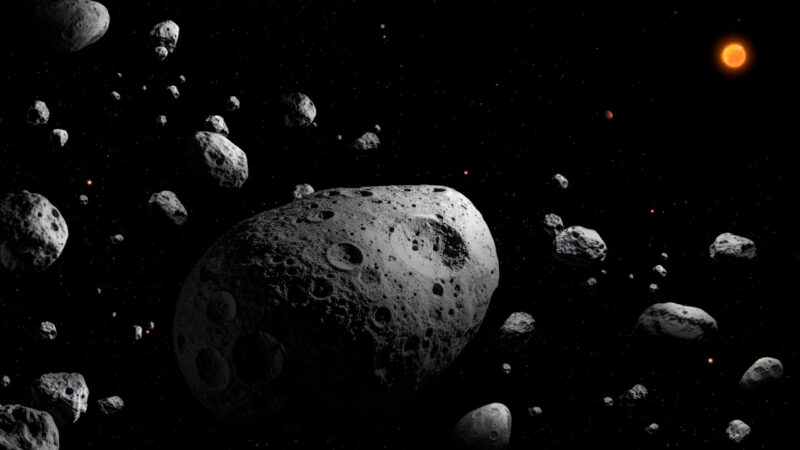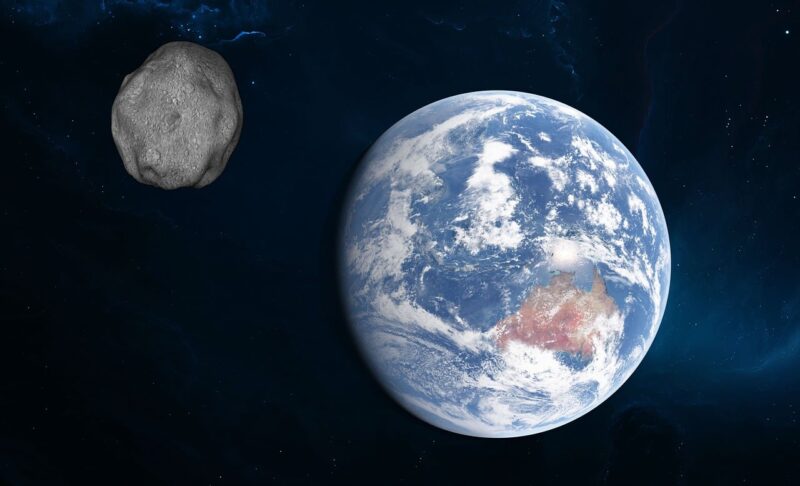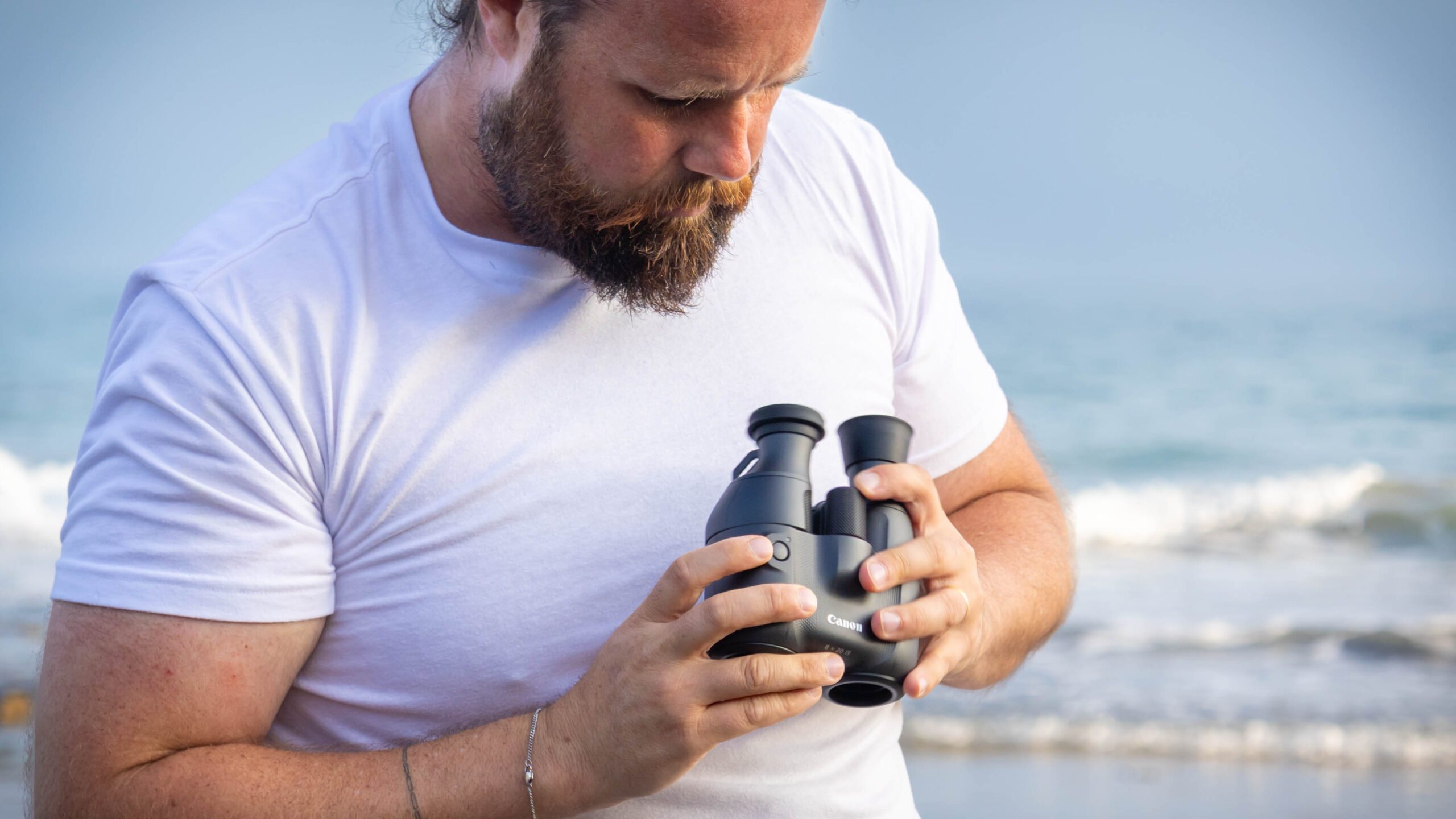Now Reading: What if a small black hole devoured you?
-
01
What if a small black hole devoured you?
What if a small black hole devoured you?
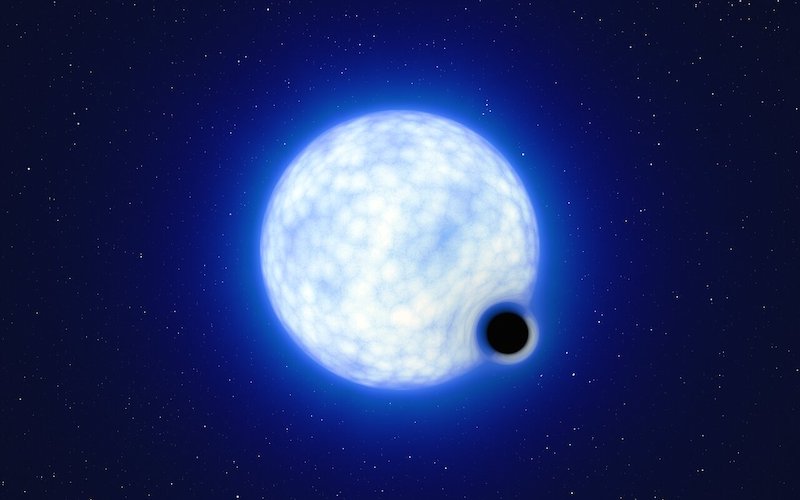
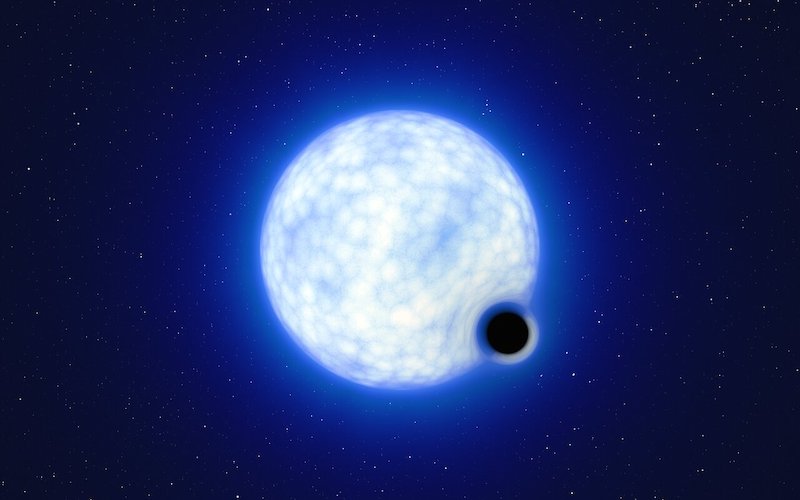
- What would happen if a small black hole from the early universe passed through a human body? That’s what Robert Scherrer of Vanderbilt University wanted to know.
- Scherrer said it would depend on the size of the black hole. However, a supersonic shockwave could blast through tissue like a bullet. And tidal forces could tear apart cells.
- Black holes might be responsible for dark matter in the universe. So understanding more about black holes might also help scientists understand dark matter better.
What would a small black hole do to the human body?
Some people may worry about being bitten by a snake or spider, but have you ever considered what would happen if a small black hole tried to pass through your body? Vanderbilt University in Nashville, Tennessee, said on October 21, 2025, that one of its professors, Robert Scherrer, proposed an answer to that question in the International Journal of Modern Physics. Scherrer set out to find what the gravitational effects would be if a primordial black hole passed through the human body, helping scientists better understand the properties of dark matter.
Primordial black holes are hypothetical black holes that formed in the early universe, possibly within the 1st second after the Big Bang. They have potential masses ranging from 100,000 times less than a paperclip to 100,000 times more than the sun. Some researchers think these black holes may make up some, or all, of the universe’s dark matter.
In his article, Scherrer examined the minimum size of a primordial black hole needed to cause significant injury to a person. Knowing this information can then help determine the properties of this type of dark matter, such as its mass.
Building on previous research
The article builds upon Scherrer’s previous study, in collaboration with Jagjit Singh Sidhu and Glenn Starkman from Case Western Reserve University in Cleveland, Ohio. That study looked at macroscopic dark matter (MACROs). MACROs are a broad class of hypothetical dark matter that are large and made of many particles. They found MACROs would cause sufficient destruction to the human body. Given that no deaths by MACROs have been reported, they could then set limits on the properties of these particles. Scherrer said:
I knew that I could carry over some of those calculations to the study of primordial black holes. Recent observations of gravitational radiation from black hole mergers, as well as new images of black holes, have revived interest in the subject of black holes in general. Plus, I remembered reading a science fiction story back in the 1970s where someone dies from having a black hole pass through them. I wanted to see if this would be possible.

What happens what a small black hole passes through the human body?
Scherrer examined two potential gravitational effects caused by a primordial black hole passing through the human body: supersonic shock waves and tidal gravitational forces.
A supersonic shock wave forms when an object moves faster than the speed of sound, and it creates a powerful disturbance in the shape of a cone. When passing through a human body, a primordial black hole would generate these shock waves on its path, destroying human tissues along the way, similar to a bullet entering the body.
The black hole would also produce tidal gravitational forces, or the difference in the strength of gravity between two points. This would create a tensile force. A tensile force pulls and stretches materials. This strong force would tear human cells apart, with the cells most sensitive to these forces being those in the brain.
How likely is such a fate?
While these findings could help scientists determine the mass of primordial black holes as dark matter, do you need to add death by primordial black hole to your list of fears? Scherrer said:
Primordial black holes are theoretically possible, but they might not even exist. A sufficiently large primordial black hole, about the size of an asteroid or larger, would cause serious injury or death if it passed through you. It would behave like a gunshot. A smaller primordial black hole could pass through you, and you wouldn’t even notice it. However, the density of these black holes is so low that such an encounter is essentially never going to happen.
Bottom line: A professor of physics from Vanderbilt University, Robert Scherrer, describes what would happen to the human body if a small black hole passed through it.
Source: Gravitational effects of a small primordial black hole passing through the human body
The post What if a small black hole devoured you? first appeared on EarthSky.
Stay Informed With the Latest & Most Important News
Previous Post
Next Post
-
 01From Polymerization-Enabled Folding and Assembly to Chemical Evolution: Key Processes for Emergence of Functional Polymers in the Origin of Life
01From Polymerization-Enabled Folding and Assembly to Chemical Evolution: Key Processes for Emergence of Functional Polymers in the Origin of Life -
 02Two Black Holes Observed Circling Each Other for the First Time
02Two Black Holes Observed Circling Each Other for the First Time -
 03How New NASA, India Earth Satellite NISAR Will See Earth
03How New NASA, India Earth Satellite NISAR Will See Earth -
 04Thermodynamic Constraints On The Citric Acid Cycle And Related Reactions In Ocean World Interiors
04Thermodynamic Constraints On The Citric Acid Cycle And Related Reactions In Ocean World Interiors -
 05Φsat-2 begins science phase for AI Earth images
05Φsat-2 begins science phase for AI Earth images -
 06Hurricane forecasters are losing 3 key satellites ahead of peak storm season − a meteorologist explains why it matters
06Hurricane forecasters are losing 3 key satellites ahead of peak storm season − a meteorologist explains why it matters -
 07Binary star systems are complex astronomical objects − a new AI approach could pin down their properties quickly
07Binary star systems are complex astronomical objects − a new AI approach could pin down their properties quickly












